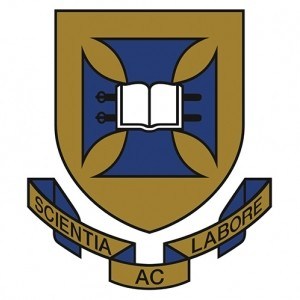Photos of university / #ouranu
This two-year program will provide students with a qualification in Engineering at the Masters level. Students will obtain advanced knowledge in signal processing and information engineering which is at the heart of modern digital systems. Areas of application include microelectronic systems, communication networks, computer vision, audio and acoustic signal processing. The program contains a targeted professional development component as well as an opportunity to select electives from other areas of study anywhere in the University.
Career Options
Learning Outcomes
Upon successful completion, students will be able to:
- Apply systems-engineering approaches to address complex and multi-disciplinary real-world engineering problems
- Demonstrate a high level of technical knowledge in subjects relevant to digital systems and telecommunication engineering.
- Communicate effectively with colleagues, other engineering professionals and the broader community using a range of communication media and tools
- Work professionally as an individual and in a team environment
- Demonstrate knowledge of engineering research methods and carry out applied research in the area of digital systems and telecommunication.
The Master of Engineering in Digital Systems and Telecommunications requires the completion of 96 units, of which:
96 units must come from completion of 6000-level, 7000-level and 8000-level courses
The 96 must consist of:
66 units from completion of the following compulsory courses:
ENGN6213 Digital Systems and Microprocessors
ENGN6536 Wireless Communications
ENGN6537 Discrete-Time Signal Processing
ENGN8100 Introduction to Systems Engineering
ENGN8120 Systems Modelling
ENGN8150 Professional Communication I
ENGN8160 Professional Communication II
ENGN8534 Information Theory
ENGN8537 Embedded Systems and Real Time Digital Signal Processing
ENGN8538 Probability and Stochastic Processes in Engineering
ENGN8637 Advanced Topics in Communications and Signal Processing
12 units from completion of ENGN8170 Group Project, which must be completed more than once, in consecutive semesters
6 units from completion of courses from the following list:
ENGN6513 Fibre Optics Communication Systems
ENGN6625 Power Electronics
12 units from completion of elective courses offered by ANU
A Bachelor degree or international equivalent in a cognate discipline with an average mark of at least 70 per cent
All applicants must meet the University's English Language Admission Requirements for Students
Cognate disciplines
Electrical Engineering, Electronics Engineering, Telecommunications/Communication Engineering, Information Engineering.
ANU offers a wide range of scholarships to current and future students to assist with the cost of their studies. The University is committed to enabling all students, regardless of their background, to achieve their best at ANU and realise their potential.
Eligibility for ANU scholarships varies depending on the specifics of the scholarship and can be categorised by the type of student you are. Specific scholarship application process information is included in the relevant scholarship listing.





